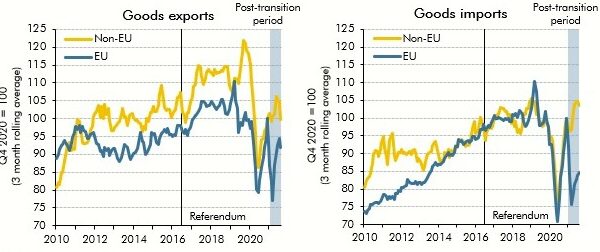- Posted by digital assignment
- Categories Business
- Date 16/05/2022
- Comments 0 comment
1Introduction
1.1Background
Scotland, England, Northern Ireland, and Wales are considered as constituent countries in United Kingdom (UK). There is a free market policy in these parts, and it means that trading decisions are not taken by any Government rules or regulations. When evaluated in terms of nominal gross domestic product, the United Kingdom’s economy ranks sixth in the whole globe (GDP). The nominal value of GDP was $2.849 trillion, with an average of $43,770 dollars per capita in United Kingdom, in 2015 (Eriksson et al., 2019). It has a workforce of 31.75 million people and a labour force participation rate of 74.5 percent. The services sector employs 79.7% of those employed, industry employs 18.8%, and agriculture employs 1.5 percent of all employed people.
Services are the primary sector for GDP in UK, which holds about 78 percent of GDP of the country. In particular, the services related to business in London, the world’s biggest financial hub is a major driver of this trend. This paper analyses current situation of UK’s international trade due to Brexit and recent developments of covid-19 pandemic.
1.2-International Trade
Covid-19 impact on emerging trades is very challenging. Trading of different items or products between two or more countries, with the help of transactions, is called international commerce. Both import and export is possible in this trading. Import means bringing any item or service to United Kingdom from some outside sources, and export means to provide some other nations with necessary items or services (Yilmazkuday, 2021).Contact between international entities via international commerce is known as linkage in economic activity and a type of economic interaction between international entities.
1.3-Emerging Markets
Emerging markets are countries that are increasing their investment in increased production capacity. It is becoming more difficult for them to rely on their economies that are based on exports of agriculture and raw resource. It is the goal of the leaders that come from emerging nations to improve overall standard of their living. The trait that signifies the developing economies is a lower per capita income than global average (Tulung and Ramdani, 2018). The first key factor is to consider is low income, since it creates an incentive for the second feature, which is fast growth, to take hold and spread.
“5.4 percent is projected to be the rate of economic growth in major developed countries, including the US, Germany, and the UK, in 2021”. The economies of growing and developing nations in Asia, such as China, grew by more than 8%, according to the World Bank.
2-Recent Developments in UK in Terms of International Trade
2.1 Pre and Post Brexit Situation
While United Kingdom left “European Union” officially on 31st January, 2020, there was a transition period which ensured their trading remains unchanged till 1st January, 2021, when most of the “Trade and Cooperation Agreement” (TCA) provisions implement effectively (Ons.gov.uk, 2022). We anticipate the entire effect that Brexit has brought only after all of the provinces of TCA had the chance at adapting to new situations, which may include reorganising their supply chains.
Following the implementation of the TCA, the number of goods traded among the UK and EU has stayed below the level before the Brexit situation. The first chart shows that exported goods from the United Kingdom to the European Union fell up to 45 percent in January (higher than the decline seen in early stages of pandemic), and that they stayed low around 15 percent in the month of August compared with while in transition period (Orb.uk, 2022). Goods that imported into the United Kingdom from the European Union decreased around 30% during the beginning of this year and stayed down by around 20% in the month of August when compared to December 2020.
2.2 COVID-19 Effects On UK Economy
In addition to the Brexit repercussions, there have been a number of other issues that have led to a difficult year for commerce in the area. The Covid-19 has had a negative influence on the global economy, and this has had a negative impact on the fluidity and openness of international commerce in particular. Borders were closed, and whole workforces were struck down by the virus, causing supply lines to be disrupted as many firms were forced to repurpose their products (Thebalance.com, 2022). Shipping containers, as well as air freight, rose in price as a result of fewer air transport movements. The cost of shipping containers and air freight rose to levels that were out of reach for many enterprises. The paucity of goods being imported had a negative impact on both domestic commerce and exports, as seen by containers full of seasonal items were stuck in ports and as a result it missed the season for selling those items in UK. There was an absence of products and raw materials that are necessary for manufacturing, which in turn gave a hard time in international commerce. The Ever Given, a massive cargo ship, was grounded in the Suez Canal in March of this year, demonstrating the fragility of international transportation lines. The way to the “Cape of Good Hope” was taken by many of the 450 ship that were waiting, which would add roughly 8 days and 3,500 miles to the voyage. A number of businesses expressed fear that, if a bottleneck at the Suez Canal persisted, they would require buying at a higher price and send them via air passage, which would be at least thrice as costly.
Because of the absence of regular economic circumstances as a result of the epidemic, many businesses are still unsure about the effect of Brexit on their operations. Although the International Documentation team at the Greater Birmingham Chambers of Commerce has continued to produce paperwork to permit numerous shipments of commodities to a range of international markets, exports have not yet recovered to pre-pandemic and pre-Brexit levels. According to the most recent Office of National Statistics (ONS) figures, exports decreased by 7.4 percent in June 2021 when compared to the same month in 2018, while imports decreased by 2 percent (Corporatefinanceinstitute.com, 2022). This trend has been mirrored throughout the United Kingdom, and it is also reflected in Greater Birmingham for the certificates of origin that Chambers produces. With the opening of the borders and the relaxation of pandemic restrictions, there has been a surge in the temporary flow of items for trade fairs and exhibits, as well as professional equipment and commercial samples, in recent months. The introduction of new procedures and the need of documentation that weren’t previously necessary have presented challenges for certain dealers.
Despite the fact that trade discussions are still ongoing and that many foreign markets have reached agreements in principle, certain changes in trade are still expected. However, it is vital to recognise that there is assistance available to assist in navigating the difficult trade trip. Its primary concentration is on bilateral trade with Commonwealth countries, and it has established strong alliances and international networks to help it create trade possibilities. The Greater Birmingham Transatlantic Chamber of Commerce is a member of the British American Business Network, which has 21 chapters across the United Kingdom and North America and is also available to assist in the development of transatlantic relationships, as well as bi-lateral trading and investment opportunities (Worldatlas.com, 2022). With each passing day, week, and month that businesses navigate their way through this new world post-Brexit and in collaboration with From the COVID-19, they have the opportunity to learn from others’ experiences, follow best practises, and be aware of the business support landscape that is available to assist them in achieving their goals.
3. Emerging Markets Importance for UK for Boosting up Foreign Trade
Working capital has been continually needed for optimal distribution, operational frequency, and turnover of inventory. Organisations of Commerce finance that specialise within international trade may assist businesses within developing economies for reducing exposure riskas well as cash flow improvement position.
The EM (emerging markets) have dramatically extended its “economic footprint” within the global commerce over the last few decades, and this trend will continue (Assets.publishing.service.gov.uk, 2022). Previously, commerce of vast majority was conducted between advanced economies alone whereas it is among developing and industrialised economies today.
As of this writing, there are twenty-four countries that are considered emerging markets. These countries are the following: the UAE; Turkey; Thailand; South Africa; Russia; Taiwan; Qatar; Poland; Peru; Pakistan; the Philippines; Mexico; Korea; India; Hungary; Indonesia; Greece; Egypt; Colombia; China; the Czech Republic; Chile; and Brazil (Diva-portal.org, 2022). EM are nations that are creating strides toward forming more advanced economies by raising their participation within international commerce. Nations within the developing world possess lower incomes per capita than industrialised countries. Emerging markets attempting to grasp with industrialised countries, whereas, tend to have higher growth rates yearly. During natural calamities or socio-political problem influence the economy, EM are often subjected to volatility as well as instability. Emerging market enterprises might benefit from international trade finance by increasing their cash flow. There possess many ways in which trade finance solutions may assist emerging market enterprises. These include: raising capacity of working capital; increasing inventory income and turnover; enable extra people hiring.
Small and medium-sized businesses (SME) in developing countries may get the capital they need to conduct international and domestic trade activities with the assistance of supply chain finance firms (SCFCs). Additionally, trade finance may help EM companies optimise their cash flow in a variety of ways, including automated monitoring and invoices processing, risk reduction and scalable funding. The overall trade condition of the United Kingdom has been significantly affected in recent times as a result of the Brexit and COVID-19 consequences. But the United Kingdom may profit from the developing markets since it can assist the country in regaining its lost place in the global market (Steinberg, 2019). It is essential for the UK to create import and export links with emerging nations while also maintaining a stable trade route with those countries in order to conduct effective economic operations. It represents a chance for the United Kingdom to recoup some of the value it has lost as an outcome of the Brexit as well as COVID-19 circumstances.
4. UK Challenges to Engage with EM
Emerging economies faces a significant set of problems in contrast to industrialised ones, which resulted in turbulent markets, the way in which businesses are carried out. Given that developing account of economies for approx. 80 percent of worldwide GDP, it has been critical to maintain a consistent correct data supply. New possibilities arise as an outcome of these complexities. CPG (Consumer packaged goods) and FMCG (fast-moving consumer goods) as an outcome of the ever-changing environment has become popular (Termit.co.uk, 2022). The problem the clients have confronted when operating within developing nations throughout the globe have been diverse, and each nation as well as customer has their own obstacles.
Banking, knowledge, stock exchanges, and currency related to present investments for health are overall factors that influence clients purchasing patterns and behaviours in emerging nations with inadequate financial infrastructure.
Political Instability: A vast majority of advancing economies have been plagued by military unrest, societal disorder, and an instable political party, which may exacerbate variety of problems for consumers, retailers, and manufacturers in the long run (Kadence.com, 2022).
Domestic Infrastructure Problems: The infrastructure within developing markets has often not been at the equal level as that in established nations, which means that enterprises in these regions must frequently change their strategy successfully.
Unreliable distributors: It have been seen instances that when vendors have failed to deliver things to sites where they have been contracted to do so or have said that they will do so, creating it difficult for concerned brands to determine where their goods are being marketed.
Fragmented Supply Chains: There has often been insufficient visibility within the supply chain involving all parties, resulting insufficient synchrony among suppliers as well as operators.
Product Diversion: Within developing countries, it is common for items to be diverted as well as sold through unlicensed retailers or distributors within unlawful areas.
A rapid change in the environment: Alteration in developing markets has been unavoidable, particularly as there is development ineconomies; enterprises come as well as leave, creating it impossible to attain an exact record for situation of certain areas.
Region Entrance/Territory: When businesses need to expand into innovative territories or regions within developing market areas, they often found that there has been no reliable dataset of information from where they can draw and forcing them to gather overall information.
These difficulties may make it difficult for the United Kingdom to do business in developing nations. Improved business practises are required in order to overcome these challenges and conduct successful commercial operations in growing economies. When the United Kingdom makes appropriate investments in developing areas, it has the potential to enhance its commercial situation.
For more details follow the link given below:
Brexit and COVID-19 Effects On UK International And Emerging Trade




